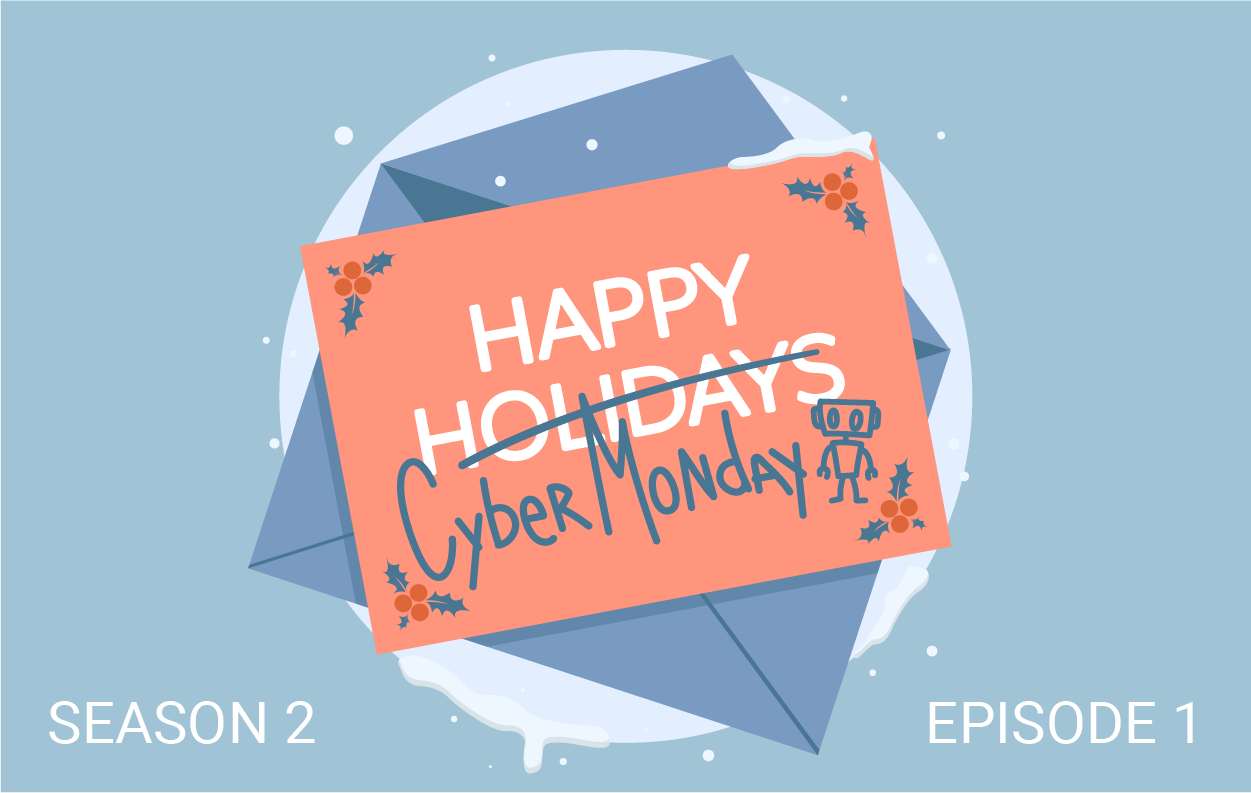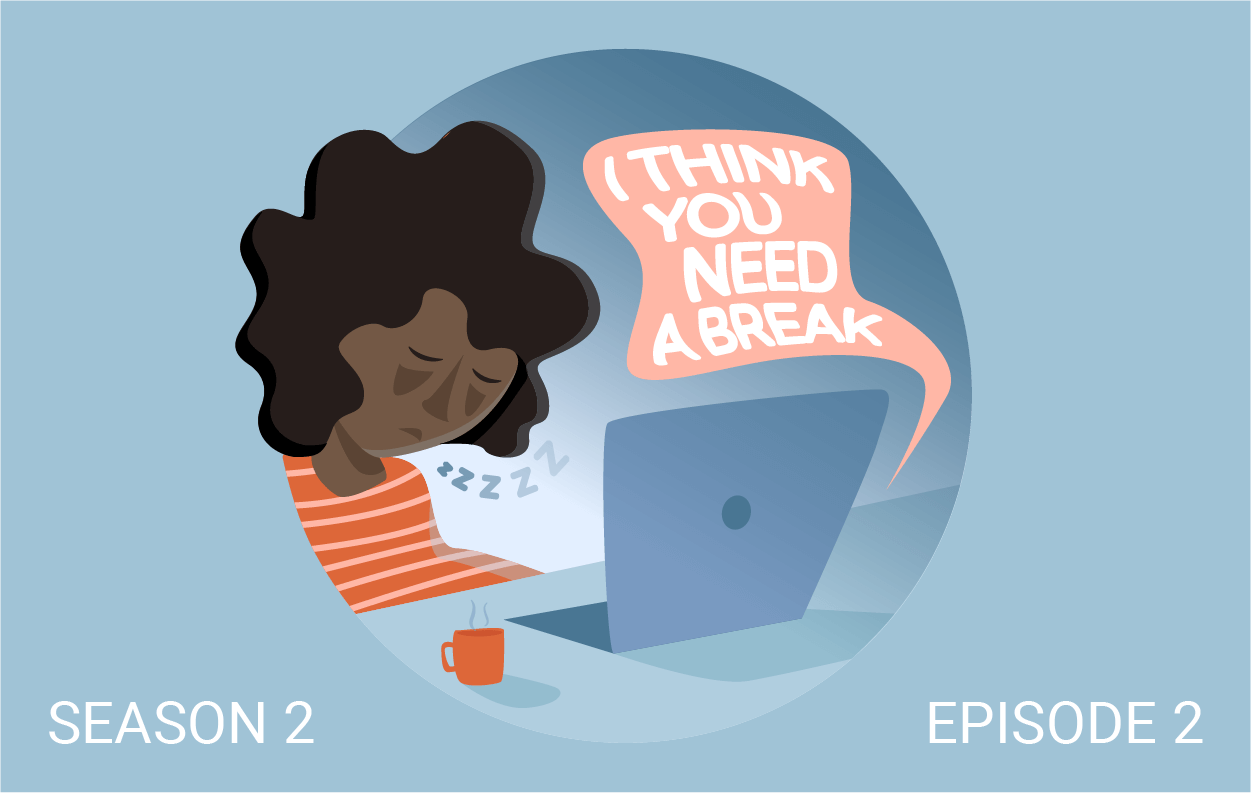
Ask the expert special
Jason "Retailgeek" Goldberg
MAKING IT WORK PODCAST
Season 2 | Ask the expert special
We thought it was time to give the Making it Work entrepreneurs a bit of a break. So as they catch up on calls and tweak their Ts & Cs, Tom chews the fat with Jason "Retailgeek" Goldberg.
Nobody could have seen COVID coming, but some coped better than others. While big-box retailers scrambled to streamline their online offering, small businesses were disproportionately disadvantaged in the race to adapt.
But as big companies struggle with their supply chains and service levels, changes in consumer behavior have created new opportunities for small and medium businesses.
So how can entrepreneurs fill this gap? And who did Jason (not) say "I told ya so" to?
Listen now
SHOW NOTES
How should small businesses position themselves for the future of retail?
Disasters. Opportunities. Adaptation. New business models. There’s no doubt about it, the pandemic resulted in a great many businesses switching to reactive modes of operation, throwing their plans into disarray.
And it’s only now that we’re able to take a tentative step back and take stock – not only look at what’s happened, but what lies ahead. And the person to do just that is Jason Goldberg, Chief Commerce Strategy Officer at Publicis Groupe, and the brains behind @retailgeek.
“I'm a fourth-generation retailer,” says Jason. “Early in my career, I worked for a bunch of retailers, some of which grew to be quite large.” Given that one of those retailers was Blockbuster video, that’s something of an understatement.”
But whilst Jason has called upon generations of experience to build his career to his current role leading commerce strategy for a huge international agency, he still resonates with the pioneering spirit of today’s crop of entrepreneurs. “For most of my life, I've worked with others, and so I have great respect for people that are putting their own resources on the line in a more direct way than I do as a consultant.”
Just as predicted
It’s given him the ability to look at the business world from different, contrasting viewpoints, which makes his take on the past couple of years perhaps a little surprising. “I think it played out mostly how I predicted.” It’s an unusual stance, given that the prospect of a pandemic was barely being considered as an academic possibility at that point.
“COVID didn't really dramatically change consumer behavior or fundamentally alter the direction of retail trends,” he counters. “What it did more than anything, is it dramatically accelerated trends that we were already seeing in the marketplace.” And indeed, many of the changes to the retail landscape that have come about had been predicted by analysts as evolutionary components of Industry 4.0.
Jason likens it to the film Hot Tub Time Machine: “We stumbled into the hot tub and got propelled 10 years into the future. A lot of the things that became relevant are all things that the smart people in our industry thought were gonna happen, but they thought were gonna take much longer to happen.”
Hate to say I told you so
It harks back to the famous phrase about fortune favoring the prepared mind and there’s little doubt that the pandemic caught a great many businesses unawares. “As the pandemic has played out, the companies that had more infrastructure and investment in digital have disproportionately benefited.”
In particular, it’s been those digitally native brands and businesses that have had the agility to pivot to the changed circumstances. But that doesn’t mean that success has fallen into the laps of small businesses. “In general, COVID has disproportionately benefited large brands…. it's, frankly, helped the businesses that are best capitalized, to take advantage of the opportunities.”
“Small businesses are the majority of businesses, and they're the lifeblood of the industry. So I do think it's critical that they be successful and healthy and vibrant.”
Jason feels that this is unfortunate. “Small businesses are the majority of businesses, and they're the lifeblood of the industry. So I do think it's critical that they be successful and healthy and vibrant.”
But there’s a silver lining: he sees areas where the challenges presented by COVID are creating new opportunities for small businesses to flourish. He gives the restaurant industry as an example: “In North America, it's companies like DoorDash and Uber Eats that would put menus online and take orders and deliver them. And they solved the customer experience problem for all these small businesses.” But for the less digital-savvy businesses, this came at a price. “Of course, they took a significant commission on every sale.” A painful burden in a sector where margins are already very thin.
Survival in the time of COVID
And that’s the sort of impact that can sink a business that’s already treading water financially. Tales of small business owners mired in personal debt or maxing out credit cards to stay afloat were not uncommon before the pandemic – now, they’re commonplace.
“It's a complicated conundrum,” admits Jason. “There's not a lot of historical precedent for pandemics. But recessions and economic uncertainty is a cyclical thing that we've all lived through numerous times in our lifetime – or at least I have.” He reminds that the number one predictor of business success in a recession is liquidity – how good your balance sheet is, and “…the businesses that had cash on hand or access to financial instruments had a disproportionate advantage over businesses that had limited access to capital before the pandemic.”
But he offers a corollary regarding taking on debt. “The calculus is more in your favor to do it during the pandemic. And one of the reasons is a bunch of your competitors won't do that and ultimately, won't survive the pandemic. The people that are able to get through these peak points by any means necessary, including putting a lot of debt on a personal credit card, are likely to have a larger potential market with fewer competitors on the other side.”
That’s a high-risk strategy, particularly when viewed against the bail-outs and assistance from the government. Or not, as the case may be. “Oh, it's unquestionably unfair. I mean, certainly the economy and life are fundamentally unfair, but this is an acute example.”
“When we look at total employment in the US, the overwhelming majority is small businesses. When we look at economic activity, the overwhelming majority is small businesses. And so aid programs that disproportionately aid big businesses is bad economic policy.”
The shipping forecast
Of course, businesses need customers to survive too, and it’s no news to anybody that their own habits and expectations have changed as a result of the pandemic. With online becoming the primary channel for shopping, customers are placing increasing importance on the logistics of shipping.
“It's absolutely true that when you offer free shipping to a customer, you sell much more.” He gives the example of customers choosing free shipping over a higher value discount. And free shipping is, for many customers, synonymous with free and pain-free returns. Jason has an interesting opinion on this: “Here's the good news for small businesses on that. I actually think small businesses have a systemic advantage in the returns problem.”
This might seem unlikely compared to the massive resources of the big box retailers. However: “If you're a huge retailer, you just get so much stuff that you don't have the bandwidth to process it and make a smart decision about how to dispose of it. But a small business does. So it's often the case that the small business's cost for processing those returns is much lower than the large business's cost.”
The expert






Jason Goldberg
Building trust
And there’s little doubt that convenient shipping and returns are cornerstones to building customer trust – something that industry analysts have time and time again identified as the foundation for business going forward. And again, it’s an area where small businesses can win out. Granted, the huge retailers have the algorithms and the processing power to predict consumer choices, but in a way that often comes over as a little creepy. Which isn’t to say that small businesses can’t leverage the same technology to their advantage.
“Personalize your website. And by that, what I don't mean is have an automatic recommendation engine that recommends stuff based on what they've bought before. Make it feel like I'm doing business with you, an individual and proprietor of the store, not with some robot or computer.”
“It's super important to invest in knowing the customer and providing them a bespoke experience based on what you know about them. A lot of big companies are good at knowing the customer. They actually collect a lot of information about the customer, but they're colossally bad at paying that information off by giving the customer a better experience. And I say that as someone that mainly works with those big customers trying to help them.”
Looking to the future
Even with those wise words in mind, what awaits those businesses that come out the other side? Jason has positive words to offer. He compares this to the 1918 influenza pandemic, where “…spending slowed way down, and people only spent on the absolute essentials.”
“But that was followed by a period that we call the Roaring Twenties. People became extravagant spenders, and it really ushered in an era of economic prosperity. And so there is precedent and reason to believe that all of these people that have been cooped up in their home are likely to over-index on some of those things when the opportunity presents itself to do it again.”
Positive words indeed. But it’s also worth remembering that the Roaring Twenties were immediately followed by the Great Depression. That’s not to say that history will repeat itself, but it’s another reminder for businesses to try and prepare themselves for any eventuality.
Listen to the episode
More episodes



How the holidays get crazy
From Black Friday to January sales, the holiday period is a peak time for businesses. But what do you need to do to prepare, and how early should you start?



How entrepreneurs can turn off
Working around the clock is a common part of start-up life, but it can lead to stress and burnout. So how do our entrepreneurs balance work and life?